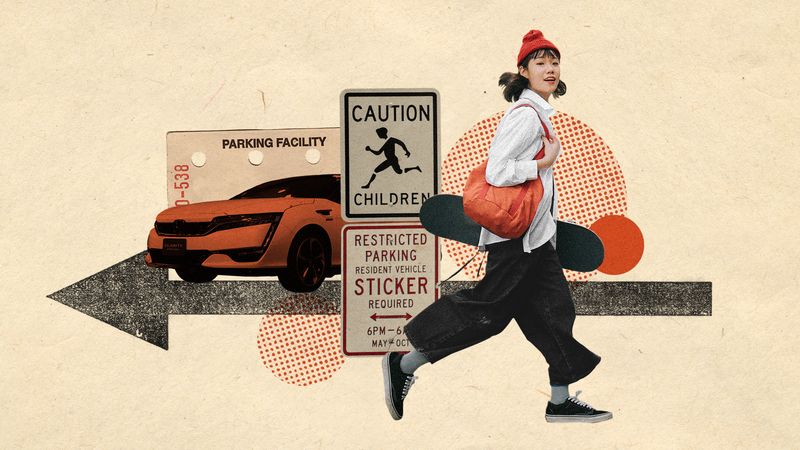As Gen Z continues to rise in influence, their unique perspectives and preferences are reshaping modern culture in unexpected ways.
From the foods they avoid to the traditional practices they disregard, their choices are not just personal but are gradually becoming societal norms.
This blog post unveils 13 everyday things that have fallen out of favor with today’s youth, offering a glimpse into a changing world that’s being shaped by the youngest generation.
1. Cable Television
Gen Z is increasingly cutting the cord on cable television. With streaming services offering more flexible and personalized options, the rigidity of cable TV no longer appeals to young consumers. This shift is more than a casual trend; it’s a significant change in media consumption.
The younger generation’s preference for on-demand content, without the constraints of fixed schedules, reflects their desire for control and convenience.
Companies are noticing this change, leading to widespread adaptations in how media is distributed and consumed, altering traditional viewing habits considerably.
2. Fast Fashion
Fast fashion is falling out of favor with Gen Z, who are increasingly prioritizing sustainability over cheap, disposable clothing. The environmental impact of fast fashion has driven this shift, as younger consumers become more aware of its consequences.
Eco-friendly and ethical fashion brands are gaining traction. Gen Z is not just rejecting fast fashion but is actively seeking alternatives that align with their values.
This conscious consumerism marks a significant cultural shift, as society moves towards more sustainable practices in fashion and beyond, influenced by this generation’s preferences.
3. Traditional Office Spaces
The idea of working in a traditional office setting is becoming obsolete for many Gen Z professionals. They favor flexible, collaborative environments like coworking spaces that foster creativity and innovation.
This trend is not merely about aesthetics; it’s about redefining how work is done. The shift towards remote and hybrid work models caters to Gen Z’s desire for work-life balance and autonomy.
As more companies adapt to these preferences, the conventional office is slowly being replaced, reflecting broader changes in workplace culture.
4. Formal Dining
Formal dining experiences are being left behind, as Gen Z embraces more casual, relaxed dining environments. This generation values authenticity and connection over formality.
The decline of traditional dining manners is evident as young people gravitate towards experiences that prioritize comfort and genuine interaction.
Restaurants and dining venues are taking note, adapting their offerings to meet these evolving preferences. The shift towards informal dining settings is representative of a broader cultural movement towards authenticity and meaningful experiences.
5. Department Stores
The traditional department store is facing challenges as Gen Z opts for online shopping platforms. The convenience and variety offered by e-commerce are more aligned with the shopping habits of this digital-native generation.
As department stores struggle to keep up, many are reimagining their business models to incorporate more digital elements.
Gen Z’s preference for technology-driven solutions highlights a critical shift in retail, as the industry adapts to meet the demands of a new generation of consumers accustomed to instant access and personalized shopping experiences.
6. Brand Loyalty
For Gen Z, brand loyalty is becoming a thing of the past. Unlike previous generations, they are less likely to stick to a single brand, preferring to explore various options based on quality and value.
This shift stems from a more informed and discerning consumer base, driven by the availability of information online. Companies must adapt by focusing on transparency, quality, and authenticity.
The fading of traditional brand loyalty is reshaping marketing strategies, as businesses strive to engage a generation that values diversity and thoughtful consumerism.
7. Cash Transactions
Cash transactions are becoming increasingly rare for Gen Z, who prefer digital payment methods like mobile wallets and contactless cards. This preference aligns with their tech-savvy nature and desire for convenience.
The reliance on digital payments is not just a trend; it signifies a broader shift towards a cashless society. Businesses are adapting, offering more digital payment options to cater to this demand.
As the younger generation leads the way, the future of transactions seems increasingly digital, ushering in new possibilities for financial technology.
8. Landline Phones
Landline phones are becoming obsolete as Gen Z embraces mobile technology. The portability and multifaceted capabilities of smartphones make traditional landlines seem redundant and cumbersome.
This shift is about more than just convenience; it’s about aligning with a lifestyle that values connectivity and immediacy. As landlines fade away, telecom companies are focusing on enhancing mobile technology to keep up with demand.
The disappearance of landline phones is emblematic of how quickly technology can change everyday life, driven by the preferences of the younger generation.
9. Processed Foods
Gen Z is turning away from processed foods, leaning towards healthier and more natural options. This generation’s awareness of nutrition and wellbeing is reshaping dietary habits.
The demand for transparency in food labeling and sourcing reflects a desire for quality over convenience. As processed foods decline in popularity, food manufacturers are responding with products that prioritize healthful ingredients.
This shift towards healthier eating habits is part of a broader movement towards lifestyle wellness, led by Gen Z’s commitment to personal health and environmental sustainability.
10. Car Ownership
Car ownership is declining among Gen Z, who prefer the convenience and cost-effectiveness of ride-sharing services. This trend reflects a shift in priorities, where flexibility and sustainability take precedence over traditional car ownership.
As urbanization continues, the need for personal vehicles diminishes, especially for a generation accustomed to digital solutions.
Auto manufacturers are taking note, exploring new mobility models to attract younger consumers. The decline in car ownership is indicative of a broader rethinking of transportation and personal mobility, driven by Gen Z’s evolving lifestyle preferences.
11. Traditional Banking
Traditional banking is being redefined as Gen Z embraces fintech solutions. The accessibility and innovation offered by digital banking platforms cater to their need for efficiency and transparency.
This generation’s comfort with technology facilitates the adoption of new financial services. As traditional banks evolve to meet these expectations, the industry is witnessing a transformation.
The shift towards fintech is more than a preference; it’s a reflection of Gen Z’s influence on financial systems, pushing for modernization and customer-centric solutions.
12. Home Ownership
Home ownership is no longer the ultimate goal for many in Gen Z. Economic factors, lifestyle choices, and a preference for flexibility lead this generation to favor renting over buying.
This shift challenges traditional ideals of success tied to property ownership. As housing markets adapt, renting becomes more appealing with modern amenities and community living experiences.
The decline in home ownership aspirations reflects a significant cultural shift, as Gen Z redefines what stability and success mean in a rapidly changing world.
13. Luxury Goods
Luxury goods are losing their allure for Gen Z, who prioritize experiences and values over material possessions. The prestige associated with luxury brands is being overshadowed by a demand for authenticity and sustainability.
This generational shift is prompting luxury brands to rethink their strategies, focusing on ethical practices and meaningful engagements.
As the desire for luxury goods diminishes, a new landscape emerges, defined by conscious consumerism and value-driven purchases. Gen Z’s preferences are reshaping what constitutes luxury, demanding a more thoughtful approach.













